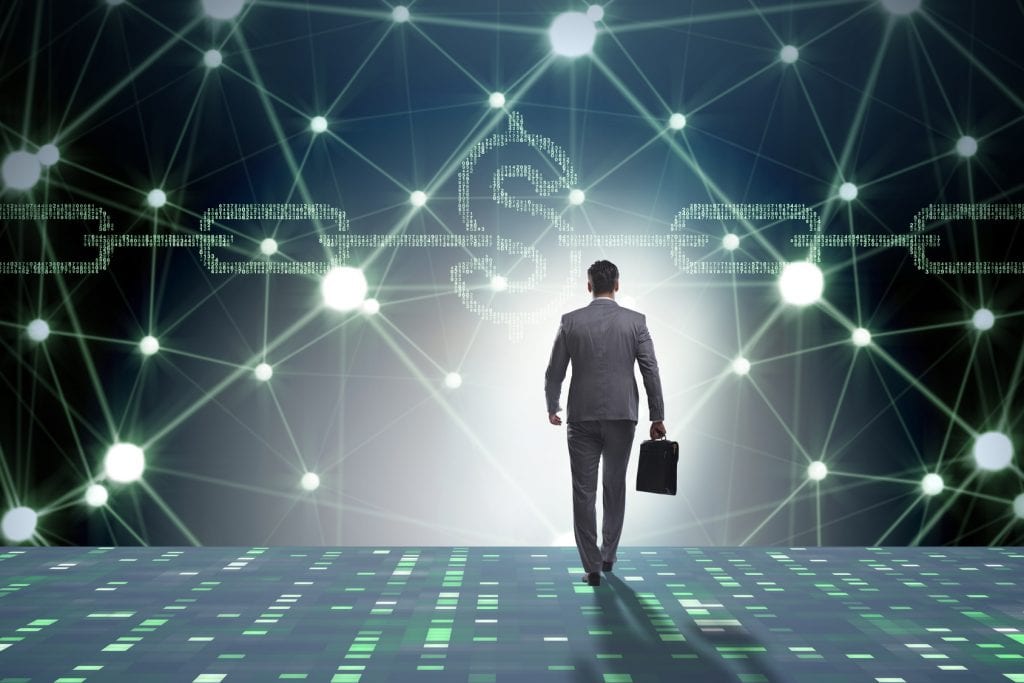The Internet and the blockchain are often compared due to their disruptive natures. These technologies share more than that in common: In fact, the blockchain has been considered a new Internet.
The Internet, while revolutionary to our generation, is a centralized system involving many actors, with no unified consensus mechanism. As a result, there are many different systems and components that do not communicate with one another. For example, someone’s identity on Github as compared to that on LinkedIn may be completely different.
Blockchain’s basic structure is its address or public key. This mechanism allows users to transfer funds and work with digital agreements called smart contracts. Similarly, the Internet runs on a server with a public IP address. Since no public information about this address exists, it is solely a point on which a user can connect and execute certain actions.
The primary area in which blockchain and the Internet differ is in the number of services required for operation. For instance, the Internet requires a domain name, which then is assigned to the DNS and indexed in the search engine; an SSL certificate for the security of users; and functional content that is used directly. In the case of blockchain, each person or company has a profile rating reflecting some digital essence of trust, including the history of the transactions of the user — similar to a Google search history log. In this record, users can link to the necessary “certificates,” such as profiles on Github, LinkedIn, and Facebook similar to how SSL certificates work on websites. Furthermore, in Ethereum’s new Byzantium update, such links will be cheaper than purchasing a web domain.
As a smart contract, each profile will contain all user information in a single economic unit and be able to make deals with other profiles, arbitrage or be arbitraged, and most importantly, connect to different rating networks. In this context, rating networks will be a blockchain representation of an organization that will contain a score based on different factors, such as job and academic performance. In simpler terms, every user in the network will be able to see how successful other users are.
Companies or organizations will have rating networks as well. For example, there could be a rating for various marketplaces or a political legitimacy rating. These updates will play a large role in making democratic societies more trustworthy and transparent.
Although blockchain is in the early stages of development, it offers one key primary advantage over the Internet. With blockchain developers are now able to start from scratch: to design anything they want and develop their own standards. Users can work on their profiles within the blockchain network, and create a full-fledged economic unit, or “digital passport.” Each user, whether a company or an individual, can complete out transactions with other individuals on the network. In addition, the rating and history of their profile will be authentic, informative, immutable, and trustworthy. This profile rating can be more reliable than a work reference, tax filing, or credit history, for the sole reason that it will be impossible to forge.
This will also facilitate the creation of marketplaces where buyers can initiate transactions on their profiles, with others, and give the seller the ability to either accept or reject the transactions. Meta-data about the transaction is kept in a specialized structure within the mapping of the user contract. The unique ID of the transaction is its transaction hash, which is created on the marketplace.
Marketplaces can store all of the information about a transaction such as its container, parameters, and duration, among other factors. The transaction will first appear on the marketplace, its ID is then sent to a smart contract, and the seller receives a hash from it. Its compliance is checked with the essence of the transaction on the marketplace and the final decision is made whether to accept or reject. After the conclusion of the transaction, the reputations of both parties are amplified, if successful, or are reduced in the event of a conflict.
While the birth of the Internet offered the possibility of increased connectivity across the world, blockchain has the potential to take this to the next step by providing a way to become completely digital. When transactions and marketplaces become completely digitized, the creation of fully decentralized and trustless society becomes a very real prospect.
